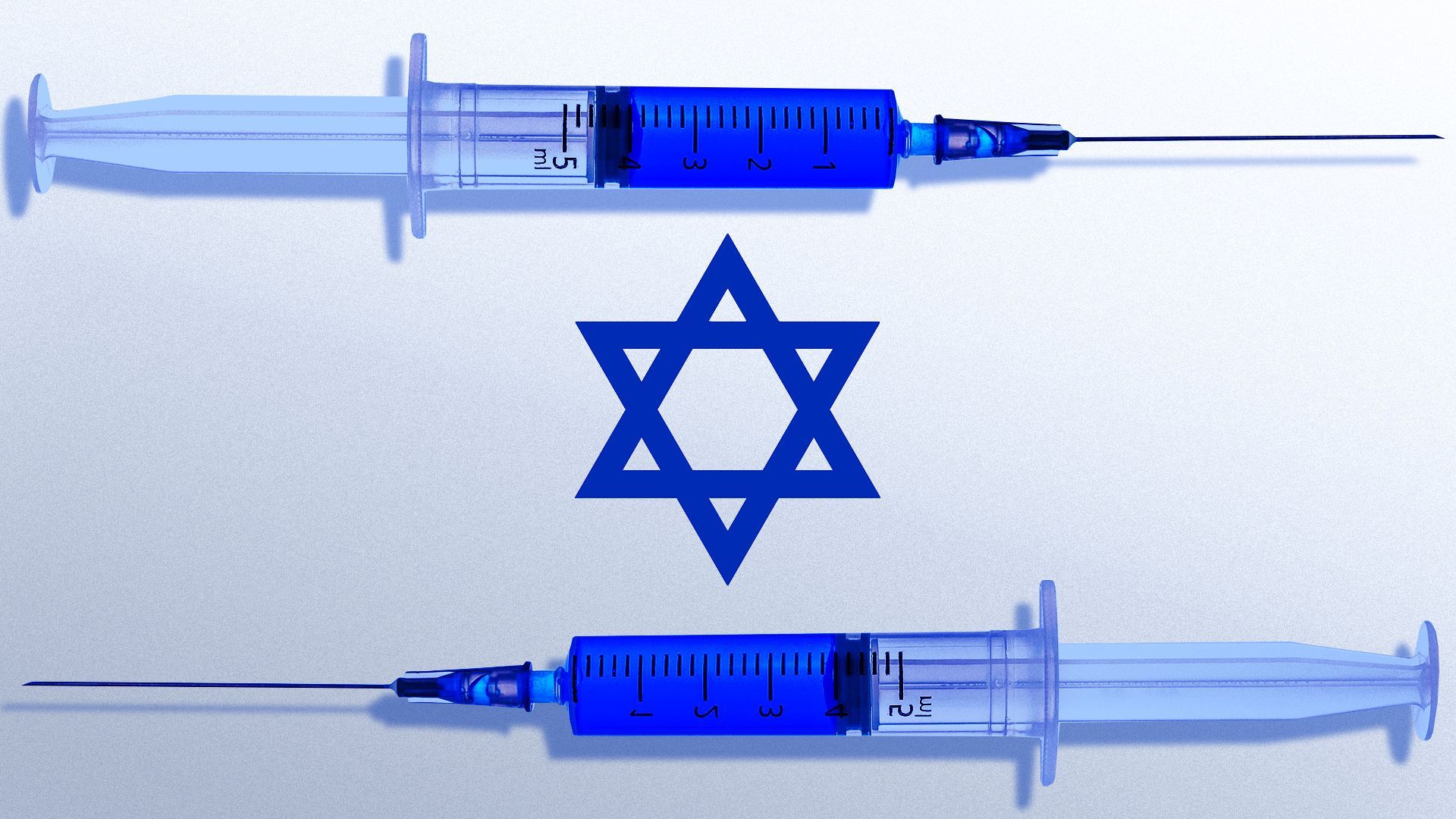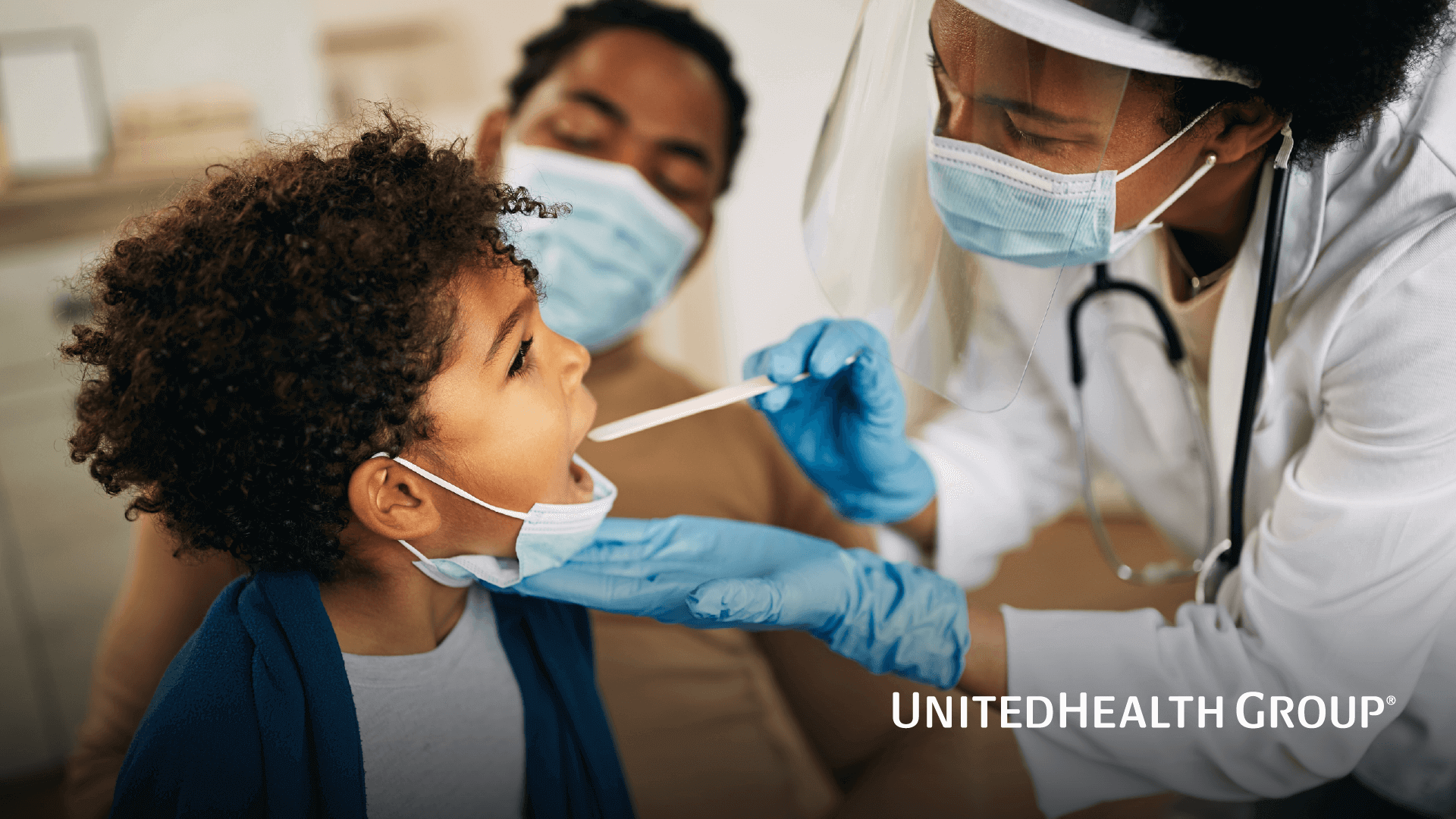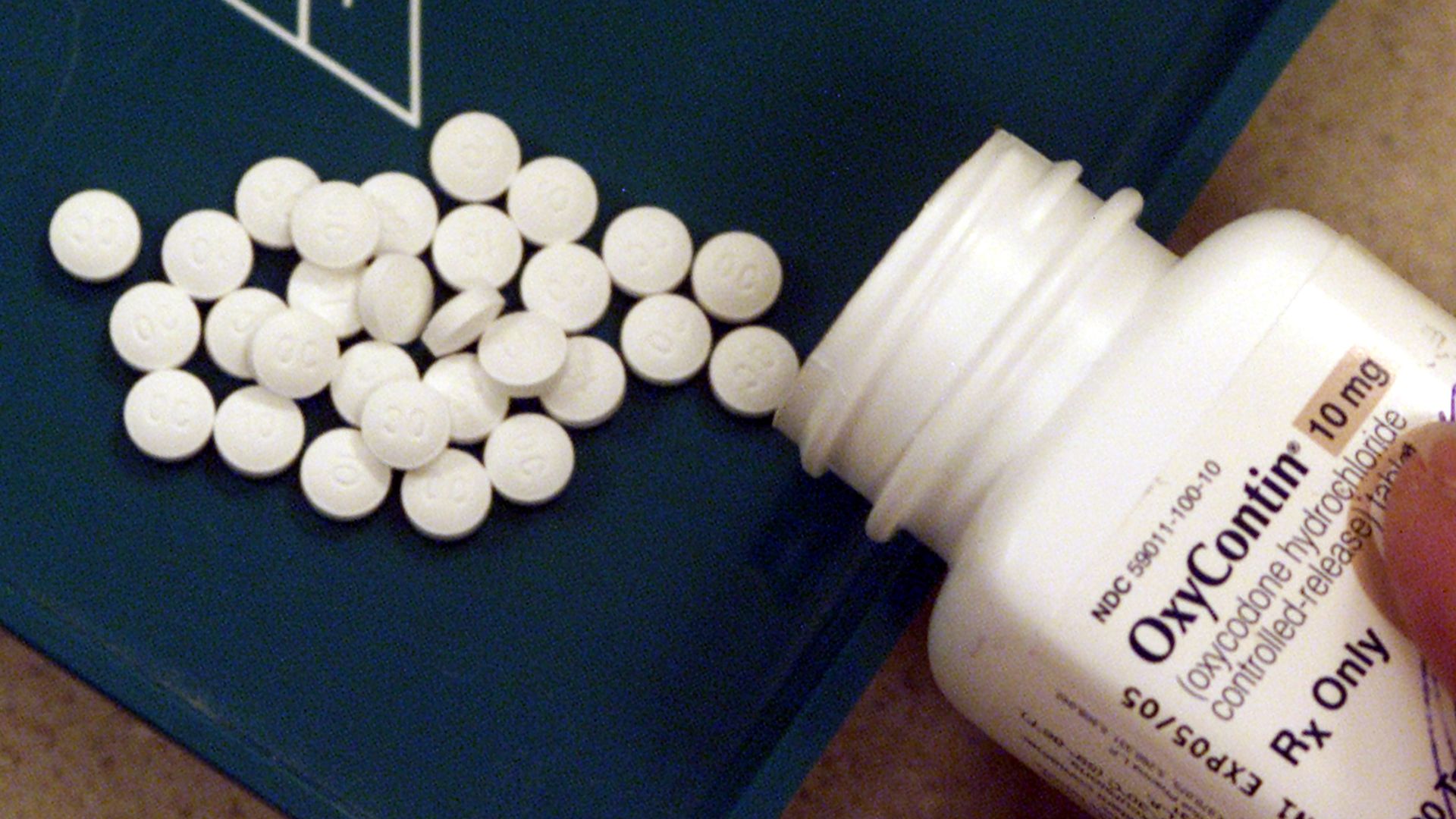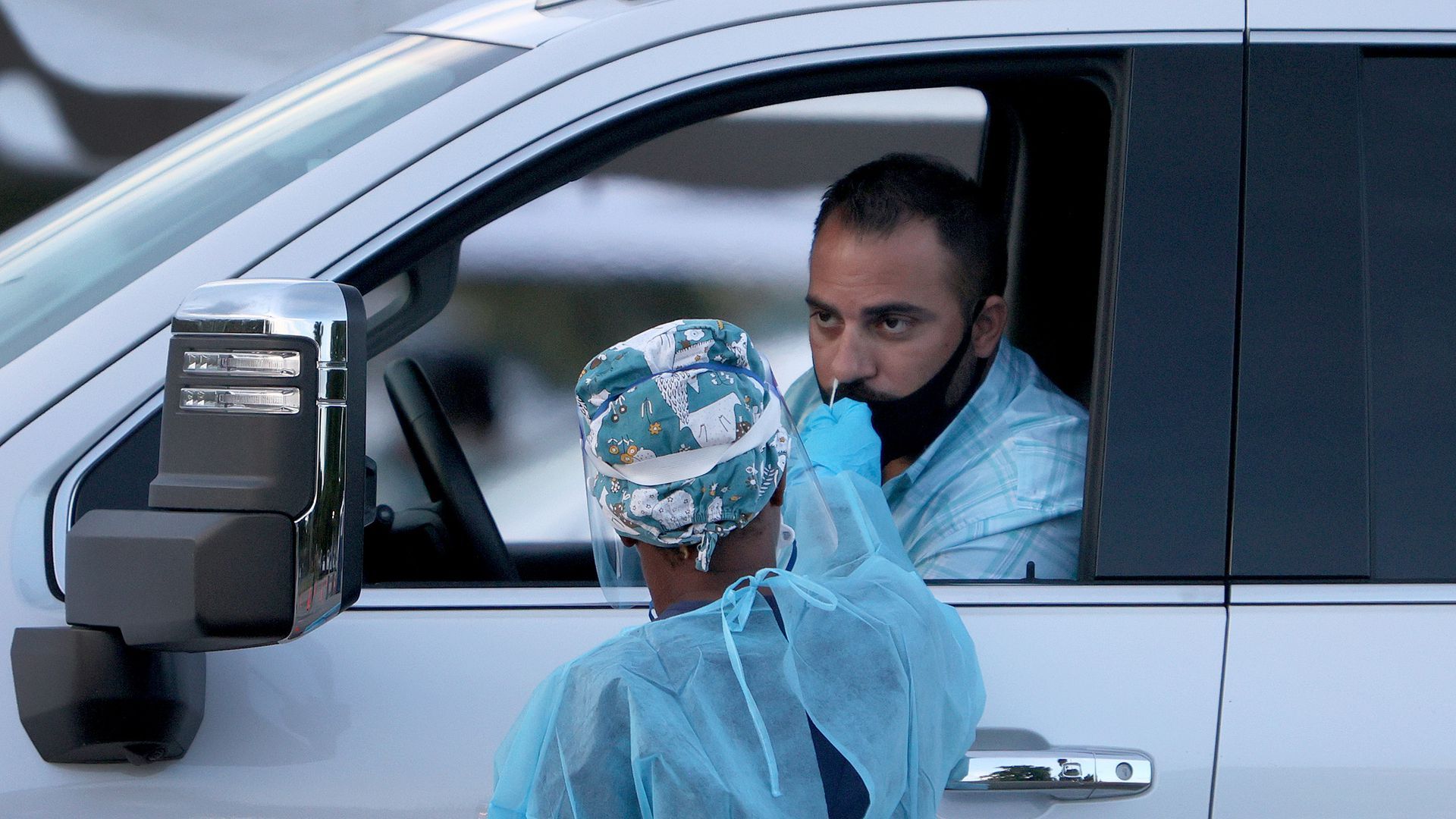| | | | | | | Presented By UnitedHealth Group | | | | Axios Vitals | | By Tina Reed ·Sep 02, 2021 | | 🌞 Good morning, Vitals readers. Today's newsletter is 1,118 words or a 4-minute read. Situational awareness: The FDA will hold an advisory committee meeting Sept. 27 to discuss Pfizer-BioNTech's applications for a COVID-19 booster. - As you'll recall, the Biden administration has said it plans to begin offering boosters on Sept. 20 — that is, if it's approved by the FDA and the CDC.
| | | | | | 1 big thing: COVID cases overall are up 14% |  Data: N.Y. Times; Chart: Kavya Beheraj/Axios Coronavirus infections continue to climb all across the U.S., with few new solutions on the horizon, Axios' Sam Baker reports. The big picture: There are some initial signs that things may be starting to get better in the South, which has experienced the worst of this wave, but America's springtime dreams of putting the pandemic behind us seem a lot less realistic now. By the numbers: On average, about 160,000 Americans now test positive for COVID-19 each day — a 14% increase, nationwide, over the past two weeks. - A small handful of hotspots, including Florida, Louisiana and Missouri, have begun to improve over the past two weeks, although cases are still rising in 44 states.
- The biggest increases remain clustered largely in the Southeast, along with Indiana, West Virginia and South Dakota.
What we're watching: Nationwide, COVID-19 hospitalizations are beginning to tick down, largely due to improvements in the South, Bloomberg reports. That could be a momentary blip, or it could signal that the fourth wave is about to recede. - Even so, hospital capacity still remains dangerously strained in some parts of the country. Five Southeastern states — Alabama, Georgia, Texas, Florida and Arkansas — are still using over 90% of their ICU beds, per CNN.
- And in Kentucky, the National Guard has been deployed to help overburdened hospitals keep their operations running.
Vaccinations gained some steam over the course of August, as cases and hospitalizations spiked. About 60% of eligible Americans are fully vaccinated, and roughly 72% have at least one shot. The bottom line: More vaccinations will keep more people alive and out of the hospital, even as the Delta variant continues to circulate. Share the map. |     | | | | | | 2. Cases are up for kids, too |  Data: American Academy of Pediatrics; Chart: Jared Whalen/Axios; Note: Case data reported by 49 states, New York City, the District of Columbia, Puerto Rico, and Guam. Hospitalization data reported by 23 states and New York City. Gaps in chart indicate weeks where no data was reported. The return to school across the U.S. coincided with surges in cases among kids, causing enough hospitalizations for children's hospitals to warn of capacity concerns. By the numbers: There were roughly 204,000 child COVID-19 cases reported last week, according to the latest data from the American Academy of Pediatrics. - That was a 9% increase in pediatric cases, compared to the week before.
Zoom out: Tens of thousands of U.S. students have had to quarantine due to COVID this school year. Most recently, a South Carolina district reportedly had 9,000 students in quarantine. - A school district in Texas announced plans to close until after Labor Day after two teachers died of COVID-19.
Driving the news: Pediatric hospitals called for federal help for their "capacity crisis" in a letter to President Biden, NPR reported. - "With pediatric volumes at or near capacity and the upcoming school season expected to increase demand, there may not be sufficient bed capacity," the Children's Hospital Association said in the letter.
|     | | | | | | 3. U.S. eyeing Israeli booster data |  | | | Illustration: Annelise Capossela/Axios | | | | Preliminary Israeli data shows that booster shots quickly spike a person's protection against both severe disease and infection, Axios' Caitlin Owens writes. Between the lines: The Biden administration has said that the main rationale for its booster push is to stay ahead of any waning of the vaccines' effectiveness against severe disease. - But slowing the spread of the Delta variant would be a welcome bonus.
Driving the news: A preprint study recently released by Israeli researchers found that, in the real world, adults who received a third Pfizer shot saw their risk of confirmed infection drop 11-fold after 12 days and their risk of severe disease drop more than 10-fold. - The study included more than 1 million people who were 60 or older.
- More data is needed to confirm the study's results, which have not yet been peer-reviewed, experts cautioned. One limitation of this study is that people who receive a booster may be more risk-averse to begin with.
What they're saying: "The main takeaway message from Israel is there's a short-term positive effect of boosts on both infection and severe disease," a senior Biden administration official said, adding that the Israeli government recently briefed members of the president's coronavirus team on their data. The bottom line: The U.S. may start offering boosters in a few weeks. Despite its limitations, data like this may be our best window — at least for now — into what the effect of the U.S. effort could be. |     | | | | | | A message from UnitedHealth Group | | Expanding access to care in underserved communities | | |  | | | | UnitedHealth Group is helping to address social determinants of health for uninsured individuals and underserved communities. See how we're advancing health equity through community partnerships that have helped more than 6 million people access care, nutritious food and stable housing. | | | | | | 3. Quote du jour: Going out with a whimper |  | | | The prescription medicine OxyContin is displayed. Photo: Darren McCollester/Getty Images | | | | "A forced apology is not really an apology, so we will have to live without one." — Federal judge Robert Drain, who approved a controversial bankruptcy settlement for OxyContin manufacturer Purdue Pharma. As part of the deal, the Sackler family "would admit no wrongdoing" and would retain much of the fortune they made from Purdue. In return, they would give up ownership of the company and pay more than $4 billion in cash and charitable assets, The Associated Press reports. |     | | | | | | 4. Wall Street boosts lab companies |  | | | A man gets tested for COVID-19. Photo: Joe Raedle/Getty Images | | | | The U.S. processed an average of 1.2 million COVID-19 tests daily in August and some of the highest daily totals since April, Axios' Bob Herman reports. What we're watching: The surge of the Delta variant led to unexpected test volumes for diagnostic lab companies, and Wall Street is anticipating bigger profits for those companies as a result. - Quest Diagnostics ran almost 100,000 standard COVID-19 tests every day in August.
- Labcorp only publishes updated test volumes quarterly, but a spokesperson said the company is "seeing an increase in testing volumes primarily due to Delta and as students return to school."
- Quest's daily volume is double what Wall Street analysts had predicted would be the norm by this time of the year, and Labcorp's volumes are very likely to be close to twice as high as expected.
The bottom line: Financial advisory firm Baird expects the additional tests will add $149 million of profit for Quest by the end of the year, and that Labcorp's profit will rise by an extra $96 million by year's end. Go deeper: Coronavirus testing is a windfall |     | | | | | | 5. Medicare dental benefit could take years | | It could take at least three to five years for dental coverage to be extended to seniors through Medicare if the benefit is approved as part of a $3.5 trillion budget package this fall. Driving the news: That several-year timeline is necessary to be able to vet thousands of new dentists and devise a new pricing system — but waiting that long is also politically disadvantageous, the Washington Post reported. - The White House and Democrats are working to find a way to get benefits to seniors earlier than that, such as through sending out funds to seniors, per the Post.
Where it stands: Two-thirds of Medicare beneficiaries don't have dental coverage, and half haven't been to the dentist in the past year, according to KFF. |     | | | | | | 6. Catch up quick | - The World Health Organization is tracking a new COVID variant called Mu. (Axios)
- At least 15 million COVID vaccine doses have been thrown away in the U.S. since March. (NBC News)
- Patients with long COVID face an increased risk of kidney damage, a new study found. (JASN)
|     | | | | | | A message from UnitedHealth Group | | Advancing health equity by addressing social determinants of health | | |  | | | UnitedHealth Group is committed to addressing social barriers that influence disparities in health care access, outcomes and affordability. We have helped: - Create 12,000 homes by investing $550 million in affordable housing.
- Provide over 100 million meals during the pandemic.
Learn more. | | |  | | It'll help you deliver employee communications more effectively. | | | | | | Axios thanks our partners for supporting our newsletters. If you're interested in advertising, learn more here.
Sponsorship has no influence on editorial content. Axios, 3100 Clarendon Blvd, Suite 1300, Arlington VA 22201 | | | You received this email because you signed up for newsletters from Axios.
Change your preferences or unsubscribe here. | | | Was this email forwarded to you?
Sign up now to get Axios in your inbox. | | | | Follow Axios on social media:    | | | | | |










No comments:
Post a Comment